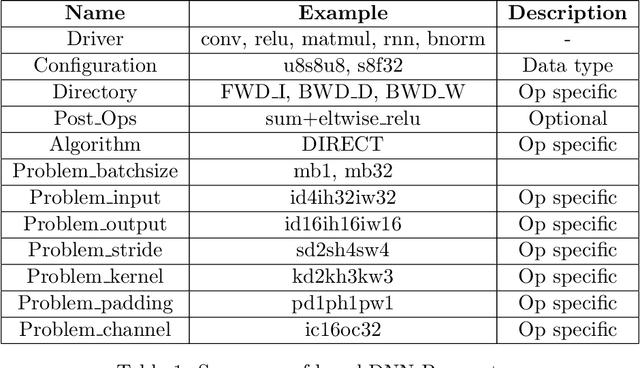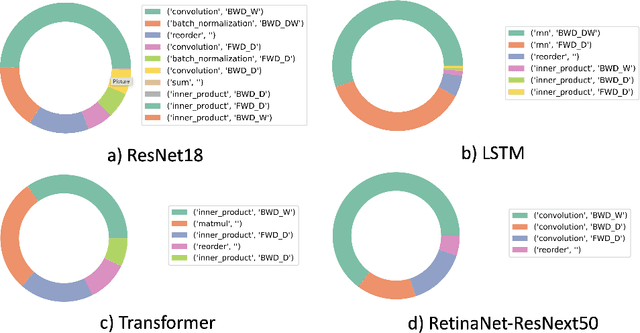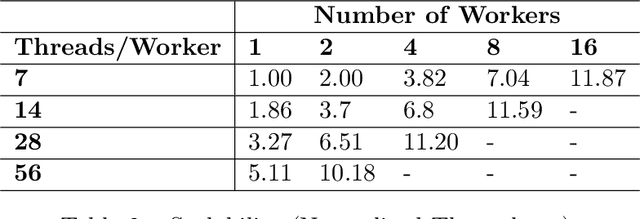Thomas Atta-fosu
Deep Learning Models on CPUs: A Methodology for Efficient Training
Jun 20, 2022



Abstract:GPUs have been favored for training deep learning models due to their highly parallelized architecture. As a result, most studies on training optimization focus on GPUs. There is often a trade-off, however, between cost and efficiency when deciding on how to choose the proper hardware for training. In particular, CPU servers can be beneficial if training on CPUs was more efficient, as they incur fewer hardware update costs and better utilizing existing infrastructure. This paper makes several contributions to research on training deep learning models using CPUs. First, it presents a method for optimizing the training of deep learning models on Intel CPUs and a toolkit called ProfileDNN, which we developed to improve performance profiling. Second, we describe a generic training optimization method that guides our workflow and explores several case studies where we identified performance issues and then optimized the Intel Extension for PyTorch, resulting in an overall 2x training performance increase for the RetinaNet-ResNext50 model. Third, we show how to leverage the visualization capabilities of ProfileDNN, which enabled us to pinpoint bottlenecks and create a custom focal loss kernel that was two times faster than the official reference PyTorch implementation.
MLPerf Mobile Inference Benchmark: Why Mobile AI Benchmarking Is Hard and What to Do About It
Dec 03, 2020



Abstract:MLPerf Mobile is the first industry-standard open-source mobile benchmark developed by industry members and academic researchers to allow performance/accuracy evaluation of mobile devices with different AI chips and software stacks. The benchmark draws from the expertise of leading mobile-SoC vendors, ML-framework providers, and model producers. In this paper, we motivate the drive to demystify mobile-AI performance and present MLPerf Mobile's design considerations, architecture, and implementation. The benchmark comprises a suite of models that operate under standard models, data sets, quality metrics, and run rules. For the first iteration, we developed an app to provide an "out-of-the-box" inference-performance benchmark for computer vision and natural-language processing on mobile devices. MLPerf Mobile can serve as a framework for integrating future models, for customizing quality-target thresholds to evaluate system performance, for comparing software frameworks, and for assessing heterogeneous-hardware capabilities for machine learning, all fairly and faithfully with fully reproducible results.
 Add to Chrome
Add to Chrome Add to Firefox
Add to Firefox Add to Edge
Add to Edge